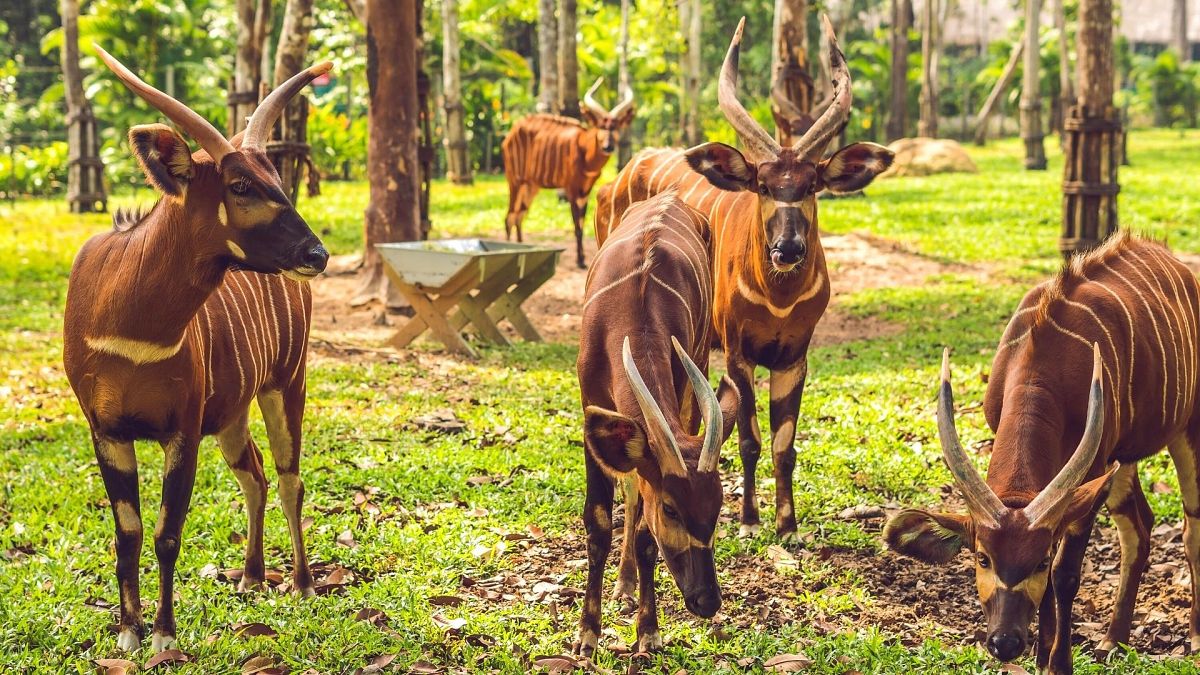With fewer than one hundred individuals left in the wild, conservationists in Kenya are fighting to save the mountain bongo, a type of antelope on the verge of extinction.
The lush plains of Nanyuki, Kenya were once home to vast herds of mountain bongos.
Characterised by their reddish-brown coats and pointed horns, the herbivorous antelope is often found in dense forestland eating leaves from dawn till dusk.
But after decades of unchecked poaching, there are now fewer than 100 individuals left in the wild - a drastic decline which could see the species disappear altogether.
“After the 1950s, this animal started going through a very steady decline,” says Robert Aruho, head of conservation at Mount Kenya Wildlife Conservancy.
“This is largely attributed to poaching because bongos are very big animals, so a poacher killing one will get a big reward for the meat and also the skin.”
Aruho is now leading efforts to conserve the species, providing medication, food and protection to the endangered antelope.
“The last national wildlife census verified that there are only 96 bongos left in the wild and that is very alarming,” continues Aruho.
In a bid to boost numbers, the conservation initiative launched the Mawingu Bongo Sanctuary - a three square kilometre protected area located on the steep slopes of Mount Kenya.
This week, five animals will be released into the 'bongo park' - the first time such an operation has been undertaken.
But despite the cause for optimism, Aruho is wary that preventing extinction comes at a cost.
"When they reach a point where we must come in to assist them, the price we pay in terms of financial resources, human resources is very, very big, and sometimes we are not ready to pay that price," he says.
“Reversing extinction is very costly, and we must do everything that it takes to prevent this species from reaching it.”
Watch the video above to see the threatened mountain bongos for yourself.



